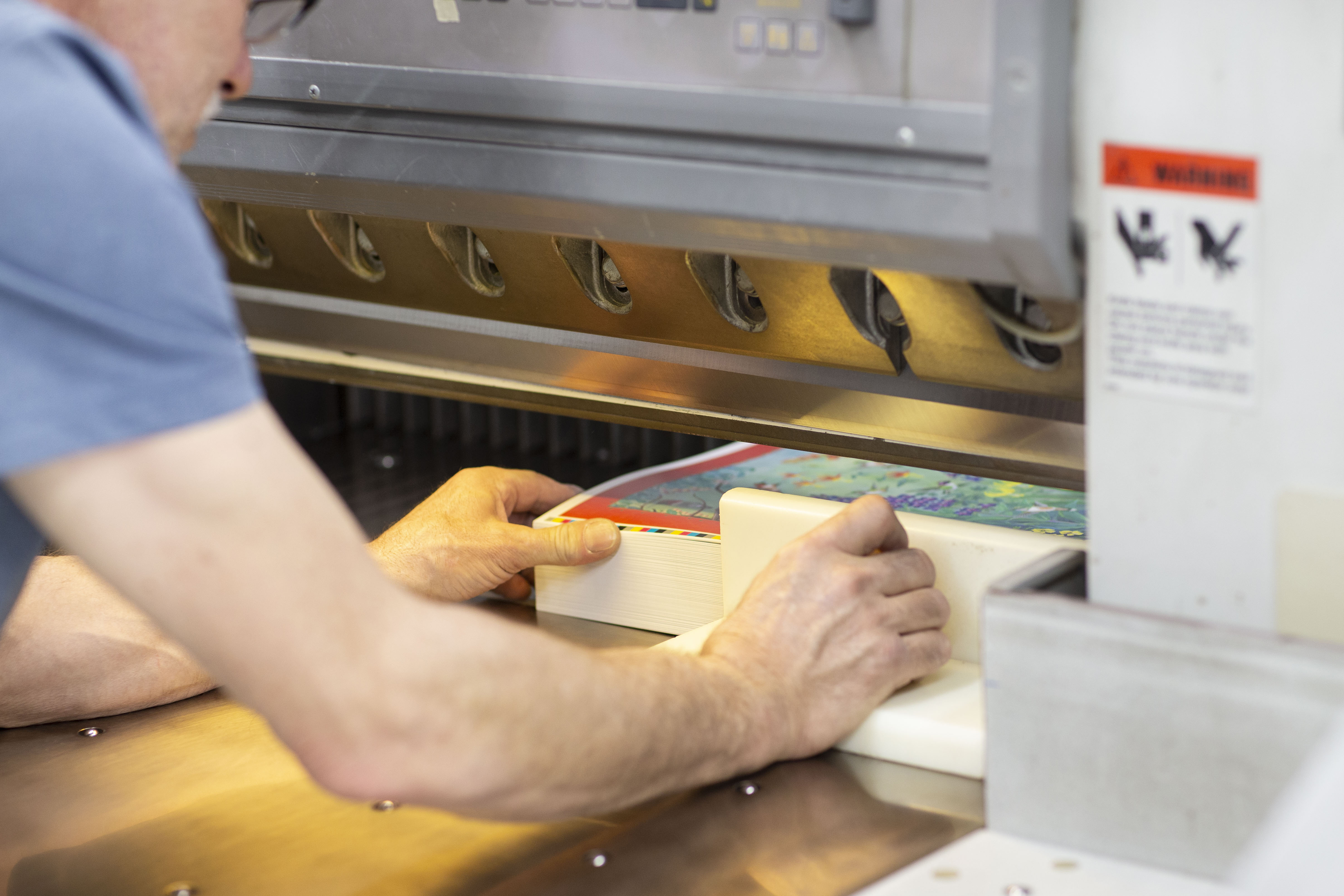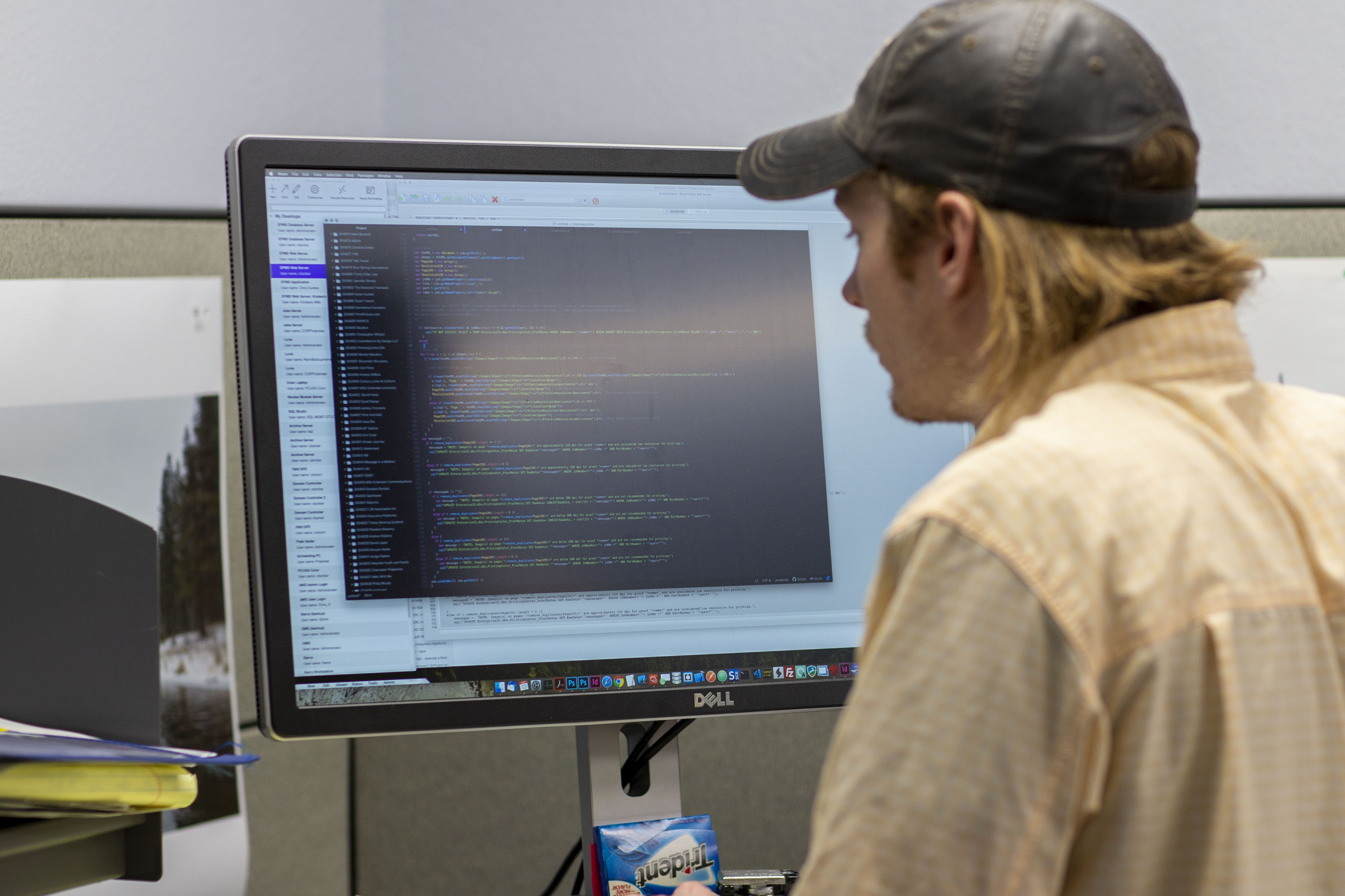

Printing Center USA started off in 1970 as a small printer and over the years grew to be a large player in the commercial printing market, serving the entire United States from West Coast to East Coast.
During this growth process, Printing Center USA also had to overcome some growth pains, Kevin Evans, Account Services Director at Printing Center USA. “As we were growing, we were getting in more jobs; however, that made the approval process a handful for our prepress staff. If there was a mistake in a file or a PDF had no bleed, Customer Service had to get in touch with the client to get their feedback to change the document or, if they had adapted the document, to get client approval that this was ok. As this was a fully manual process, this became very stressful for our preflighting staff as they were processing more than 40 jobs a day. I did not want our experienced staff getting stuck in manual, repetitive and tedious work”

Dwight Kelly, CEO at Apago Inc. said “When Kevin started talking about the issues they were having and wanted to resolve, it quickly became clear that automation was needed. You can’t grow like that and keep manually preflighting and approving jobs. That’s why we recommended pdfToolbox Server to perform all necessary quality checks and to automatically fix most problems. pdfToolbox Server CLI can easily be integrated with both Enfocus Switch workflows and PrintingCenterUSA’s custom web-to-print storefront running on cloud-based servers.
Apago’s solution includes a browser-based upload widget and web services for queuing and processing jobs, preflight, thumbnail creation and page assembly. The solution is fully scalable to handle seasonal peaks in production.” The entire development process took less than two months. Apago leveraged the Process Plan capabilities of pdfToolbox to allow both quality checks and fixes to be controlled via job-ticket variables. This feature reduced the number of preflight profiles from potentially hundreds to just one master profile. Variables allow checks, such as page size and color usage, to be dynamically set for each product. pdfToolbox’s Quick Checks significantly reduced the time required to inspect customer files.
“Now the entire process has been made extremely easy for our customers”, Kevin explains. “They just check the type of product they want, e.g. a 16 page booklet and upload their document or artwork into a folder. After that, they still have the option to remove or add additional artwork or pages until the product is how they like it. Then the moment the order is placed, pdfToolbox does a check on the spot. If mistakes or errors are noticed, the client gets the option to either fix it themselves, or let the system do this, e.g., add bleed or add page numbers to pages that don’t have any. Once the clients have approved or changed this, the document is ready to go, resulting in faster order intake and processing and as a consequence in higher customer satisfaction.”

Kevin Evans: “Thanks to the automation of pdfToolbox Server, we are able to handle a lot more orders than before in a lot less time than before. Usually, between September and December, which is our peak season, we would need to look for two or three extra people to preflight. I don’t think that with this solution this will be needed anymore. In the current times of the Covid-19 pandemic, the combination of more orders and not needing extra staff to handle them is a double win for the company and our employees.”

Dwight Kelly: “I think what we did at Printing Center USA is help solve a problem that a lot of printers are faced with who are starting up with web-to-print. A web to print portal is an extra sales channel, but it also has consequences on the rest of the printing process, especially if there is manual preflighting and customer approval involved. Suddenly your experienced prepress staff is stuck doing repetitive and monotonous work. With the current system, the web-to-print portal becomes part of the entire automated print flow, and your experienced staff don’t have to do repetitive work anymore. Their experience can be optimally used where it counts.”